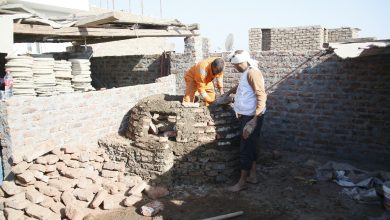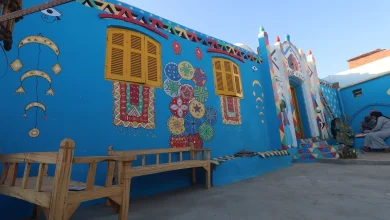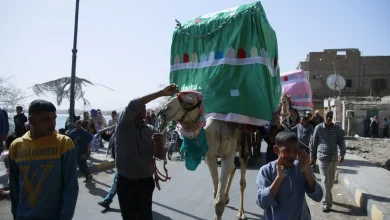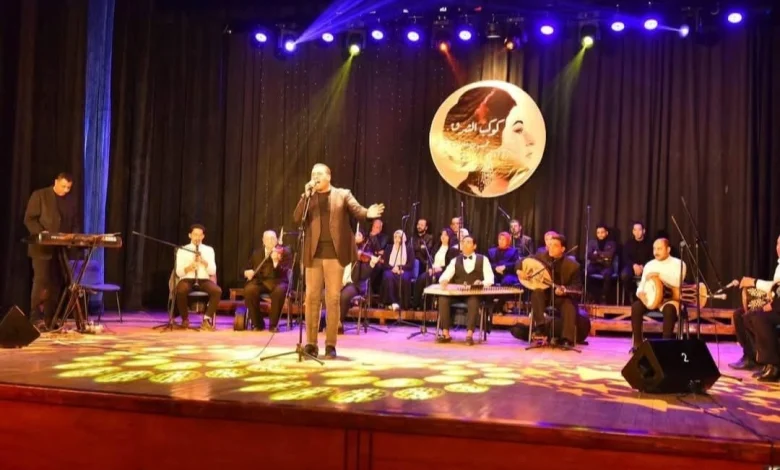
200 pounds a month without a headquarters or uniforms… The crisis of the National Music Band in Sohag escalates
The National Music Band of the Sohag Culture Branch has faced many challenges since its establishment in the 1990s, which almost led to its dissolution before it was revived through personal efforts in 2014. Despite its local and international successes, the band currently suffers from a lack of financial and logistical support from the Ministry of Culture. Members receive a nominal fee of no more than 200 pounds per month and use their own instruments, without official uniforms or a permanent headquarters.
Sohag Arabic Music Band
The band was founded in 1997, and its first coach was Hamada al-Shazli. Khaled Habashi, the band’s current conductor, recounts its founding and the challenges it has faced. He tells Bab al-Masr: “I was a member of the band in the 1990s, when it was suffering from disintegration and collapse. But since 2014, I have restructured it and brought together experienced members and new ones.”
Over the past decade, Habashi has succeeded in raising the band’s rating from category C to category A. He adds: “We participated in official celebrations in Sohag and all of Egypt’s governorates, and the General Authority for Cultural Palaces began to recognize our artistic strength. It supported our annual participation in celebrations in Cairo, both during Ramadan and at other times.”Sohag Arabic Music Band
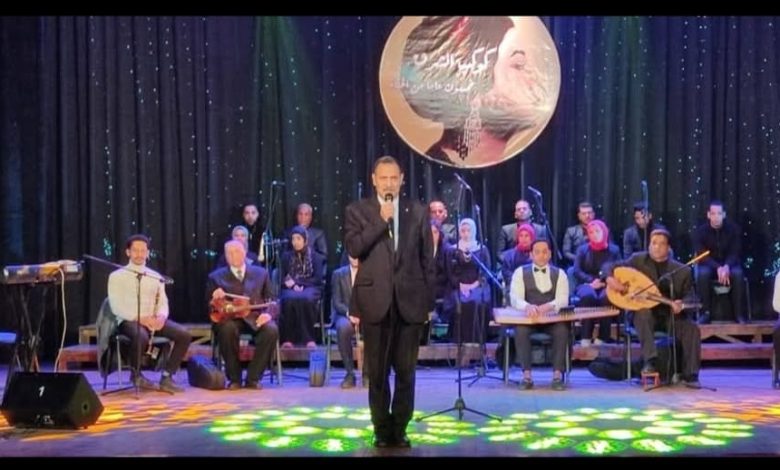
demands for better contracts
Since 2014, the band’s trainer has been contracted on an annual training basis for a monthly salary of 600 pounds. Each member receives 15 pounds for each rehearsal and 40 pounds for each concert, at a rate of eight rehearsals and two concerts per month. “Based on these contributions, members should receive approximately 200 pounds per month. However, after deductions, the actual amount does not exceed 150 pounds,” Habashi explained.
He pointed out that a detailed memorandum on these conditions had been submitted to the head of the Central Upper Egypt Cultural Region in Assiut. A copy will also be sent to the Ministry of Culture after the official title has been amended to reflect the administrative context, and addressed to the governor, the head of the authority, and the minister.
Neglect of the arts in Upper Egypt
The band consists of 35 members, including musicians who play various instruments such as the organ, qanun, oud, violin, clarinet, trumpet, tambourine, drums, tabla, and daf. In addition, there are male and female singers in the choir, as well as the band’s director.
With no official appointments and only annual training contracts, the band’s cohesive structure began to gradually disintegrate. Many members left due to low pay. Habashi reassembled the band in 2014, after it was on the verge of collapse.
He emphasized that the main reason behind this decline was the continued neglect by the Ministry of Culture and the General Authority for Cultural Palaces. This is a general crisis affecting most artistic groups in Upper Egypt, not just Sohag.
Habashi explained that the situation was extremely difficult, even in terms of resources. There were musical instruments that were no longer usable, including tambourines and organs that had been reduced to scrap. The band had no equipment or instruments.
Revival
Habashi said:
“I am one of the sons of this band. I played in it for years and lived unforgettable days with its members. It was painful to see it collapse and be forgotten amid the indifference of officials. My fear for the name of Sohag governorate and the band’s artistic standing, as well as my personal desire to preserve the heritage of Arabic music, drove me to revive it despite all the obstacles.”
He continued: “At that time, the members were paid 15 pounds for rehearsals, and the price of a kilo of meat did not exceed 100 pounds. Now, everything has increased tenfold, except for the wages, which have remained unchanged.”
He pointed out that the current situation does not allow for attracting new young people to the band: “It makes no sense to ask a young person who is studying at university or working to give up their source of income for a reward that doesn’t even cover the cost of transportation.”
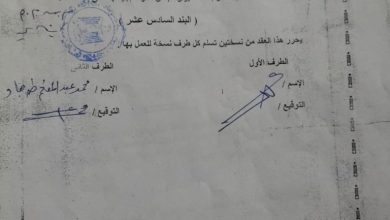
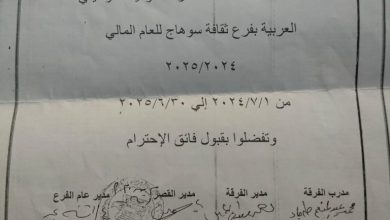
Attempts to survive
The band still has 35 experienced members, whom it is trying to retain. Habashi explained: “We hope that the situation of Upper Egypt bands will be reconsidered, because they represent the true identity of Egyptian art.”
For years, a passion for music was the real motivation to continue, said Habashi, who started as an organ player with the band in 1998. He noted that the band participated in major festivals such as the Arab Music Festival in Minya and singing festivals that were organized regularly. “There was fair competition between Upper Egypt bands, and the moral appreciation was enough to motivate us to continue,” he said.
But the situation changed, and life became more difficult: “The high cost of living continues to weigh heavily on young people. Most of them have private jobs, are preparing for marriage, or are supporting their families. It’s not logical to ask someone to give up a job that pays 3,000 or 4,000 pounds to come to rehearsal and earn 15 pounds.”
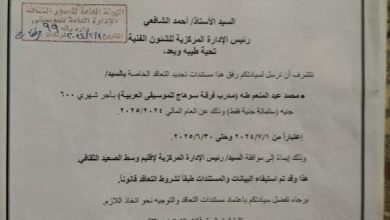
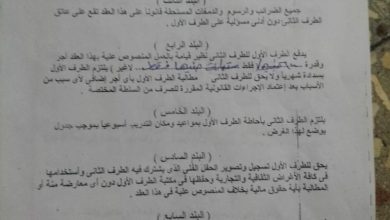
Lack of support
Most of the band members live in difficult financial circumstances, with no institutional support. Habashi adds: “Some of the band members are government employees in education or engineers in state sectors. But the majority have diplomas or university degrees without permanent jobs.”
He asked: “These are young people just starting out in life with no steady job.
It’s natural to ask yourself: should I sacrifice my time and effort for art without any reward?“ He explained that ”love of music” is what has kept the band members going until now. But mutual respect between the members and the trainer is no longer enough in the absence of financial compensation or real moral appreciation.
The band also has no permanent rehearsal space: “The cultural center where we used to rehearse has been under renovation for three or four years. There is no real alternative to date, and the whole thing has become a personal endeavor for us as members and our coach.”
He concluded by saying: “We used to participate annually in Ramadan concerts and represent Upper Egypt in important events at the national level. But last year we couldn’t participate, because there was no financial support, and they didn’t provide us with transportation or a bus. In short: there is no interest in Upper Egypt.”
Working on our own
“The band has been working for years without any musical instruments owned by the ministry,” Khaled Habashi continued, describing the challenges facing the National Band for Arabic Music in Sohag. He pointed out that all the instruments used in rehearsals and performances are personally owned by the band members themselves.
He added: “We also requested uniforms that are appropriate for us—suits for the young men and dresses for the female singers—but so far there has been no response. This is despite the fact that the band has received official praise from the music department of the General Authority for Cultural Palaces. It is considered one of the best musical bands in Upper Egypt.”
He continued: “There are official communications from cultural officials in Upper Egypt addressed to the Authority and the Ministry requesting support for the band. We have sent letters more than once, but unfortunately there has been no response so far.”Official letter from the Sohag Arabic Music Band to the governorate of Sohag
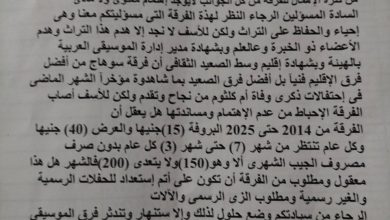
Official evaluation
Habashi revealed important details about his career with the band, dating back to June 2014, when he was officially evaluated by a specialized committee from the music department of the General Authority for Cultural Palaces in Cairo.
He explained that, according to the procedures followed, any trainer who leads a musical band affiliated with the Authority must undergo a thorough evaluation by a central technical committee. In his case, June 4, 2014, was set as the official date for the evaluation, in the presence of a committee that included Mohamed Ezzat, Moataz Abdel Khalek, and Mohamed Sultan.
He pointed out that the Sohag band was, at that time, classified in category (C), which is the lowest classification among the bands of the Republic. However, things changed after the artistic performance presented by the band at the Sohag Culture Palace.
Habashi said, “I gave it my all during the performance. The band members gave their best, and the result was very impressive. The committee decided to upgrade the band to the first category (A), which is the highest possible rating. The committee also awarded me an ‘A’ rating as a first-class trainer.
He added, “This evaluation was a turning point in the band’s career and a strong boost that proved that we are capable of competing with the major bands at the national level, despite all the challenges.”
International achievements
Habashi also pointed to the band’s achievements at the international level, saying, “Our band was considered the first to represent the General Authority for Cultural Palaces outside the country at that time. We traveled to Kenya in 2019 to perform at the Nairobi Cultural Festival, and the band participated under my leadership as conductor.”
He explained that the participation in Kenya was preceded by an official invitation in 2018, “which was documented in official reports praising the band’s outstanding performance, which was an international recognition of our artistic level, despite our limited resources.”
Read also
In the Shadow of Grapes: The History of Child Labor in Ancient Egypt
Samar Doidar: Palestinians Are Not Numbers… and “Palestinian Stories” Is the Proof

